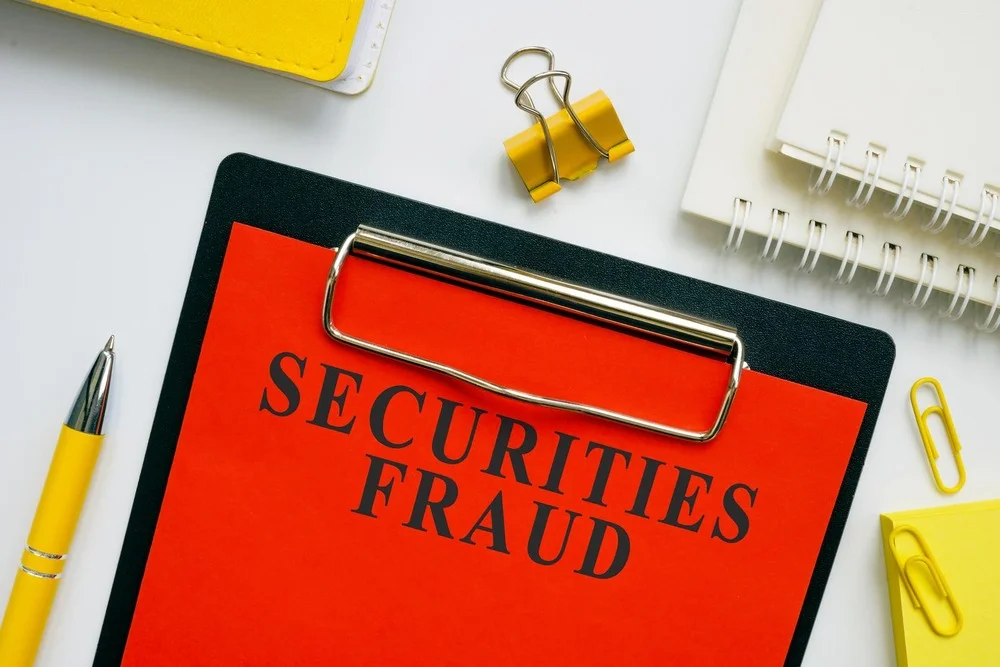How to Recognize and Protect Yourself from Attorney Investment Fraud
- Insights & News
- March 26, 2025
For many entrepreneurs and businesses, the relationship with legal advisors is one of trust and reliance. Legal professionals provide the necessary expertise to guide companies through financial transactions, investment opportunities, mergers, and acquisitions. When done correctly, these partnerships help businesses grow, manage risks, and ensure long-term success. However, like any industry, the legal profession is not immune to dishonesty and unethical behavior.
Unfortunately, some legal professionals exploit the very trust they are given, engaging in deceptive and fraudulent practices that can leave clients facing severe financial losses and reputational damage. What makes this situation even more dangerous is that the fraud is often carried out by individuals who hold positions of power and influence—making it more difficult for clients to spot warning signs early on.
In this article, we will examine the risks involved when dealing with professionals who engage in financial misconduct, highlight key warning signs to watch out for, and provide actionable steps you can take to protect your business and assets. Whether you are a seasoned businessman or a lawyer helping clients navigate complex financial landscapes, understanding how to recognize and respond to unethical practices is critical to ensuring that your business decisions remain secure and well-informed.
Understanding Financial Misconduct by Legal Professionals
When professionals with legal authority mislead their clients in financial dealings, the impact can be severe. Financial misconduct by legal advisors can include anything from redirecting funds for personal use to providing misleading advice about risky opportunities. Essentially, these actions compromise the fiduciary trust placed in the professional.
Common Examples of Misconduct:
- Ponzi Schemes: Some unscrupulous individuals may create investment opportunities that promise high returns but rely on new investors’ money to pay off earlier investors, ultimately collapsing when the flow of new investments stops.
- Diverting Client Funds: Misuse of client funds for personal or unauthorized purposes is a breach of trust and can result in substantial financial losses.
- Misleading Opportunities: Professionals may overstate the safety or return on certain financial opportunities, masking the true risks or lack of genuine backing.
- Unapproved Financial Transactions: Advisors with access to client funds may engage in transactions without consent, leading to unintended risks and losses.
Such misconduct isn’t limited to large corporations—smaller businesses and startups are just as vulnerable. Recognizing the signs early can help mitigate these risks.
Key Red Flags of Misconduct in Financial Transactions
By staying alert to warning signs, you can take proactive steps to avoid falling victim to such schemes. Below are some red flags that should raise concern when working with legal professionals on financial matters:
1. Lack of Clarity in Agreements
A reputable professional will always provide clear, written documentation that outlines the terms of any financial arrangement. If there’s hesitation or a reluctance to provide such documents, it could indicate an attempt to conceal dubious activities. Transparency in all aspects of the deal is crucial.
2. High-Pressure Tactics
A legitimate opportunity
will allow you the time to make informed decisions. If you’re pressured to act quickly or told that an offer will expire soon, take a step back. Urgency is often used by unethical professionals to prevent clients from conducting the necessary due diligence.
3. Promises of High or Guaranteed Returns
Be wary of individuals offering returns that seem too good to be true. All investments carry some degree of risk, and anyone promising high returns with no risk is likely trying to manipulate you. High-risk opportunities should never be presented as foolproof or guaranteed.
4. Conflicting Interests
When a professional stands to personally benefit from an investment or seems to push clients towards a certain opportunity because it benefits them, this is a significant conflict of interest. Ethical professionals disclose any personal interests and act in their clients’ best interest first.
5. Absence of Regulatory Oversight
Reputable financial opportunities are monitored by regulatory bodies, such as the SEC or local authorities. If a professional directs you toward an unregulated opportunity or discourages you from seeking regulatory confirmation, this is a red flag that the deal may not be above board.
How to Safeguard Your Business and Investments
Taking proactive steps to protect your business from financial misconduct is essential. Here’s how you can minimize risk:
1. Vet Your Legal Advisors
Before committing to any financial dealings, research the professional’s background. Verify their credentials through the local bar association, and check for any history of misconduct or complaints. Client testimonials and reviews can also offer insight into their trustworthiness.
2. Seek Independent Guidance
Consider consulting with another advisor who is not part of the transaction. This third-party perspective can help identify any potential red flags you might miss in the heat of the moment, ensuring that all aspects of the deal align with your best interests.
3. Cross-Check Opportunities with Regulators
Cross-reference the legitimacy of any financial opportunity with regulatory bodies such as the SEC, FINRA, or state financial agencies. These organizations maintain publicly accessible databases where you can confirm whether an opportunity or financial professional is properly registered.
4. Keep Comprehensive Records
Ensure you have a detailed record of every interaction, including agreements, emails, and meeting notes. Having well-organized documentation can be invaluable if you need to dispute any transaction or pursue legal action later.
5. Trust Your Judgment
If something feels wrong, trust your instincts and take a step back. Fraudulent schemes often rely on emotional manipulation to encourage quick decisions. Always take the time to fully evaluate any financial opportunity, even if it means walking away.
When to Consult a Legal Expert Specializing in Financial Misconduct
If you suspect that you’ve fallen victim to misconduct or are facing an unethical situation, it’s essential to consult with a professional who specializes in financial disputes. These experts can assess the situation, guide you through the legal process, and help you recover your losses.
A specialized legal expert can assist with filing complaints with regulatory agencies, initiate legal action to recover funds, or cooperate with law enforcement if criminal activity is suspected. Prompt action can help prevent further damage and increase the likelihood of a successful resolution.

Conclusion
- Financial misconduct in the legal realm can have far-reaching consequences for both businesses and individuals. Recognizing the signs early, performing due diligence, and acting proactively are the best defenses against falling victim to scams or dishonest practices.
- If you believe you’ve encountered unethical or illegal practices, don’t hesitate to reach out to Ishimbayev Law Firm. Our team of seasoned professionals can provide the guidance and support necessary to navigate complex legal issues and protect your financial interests.


